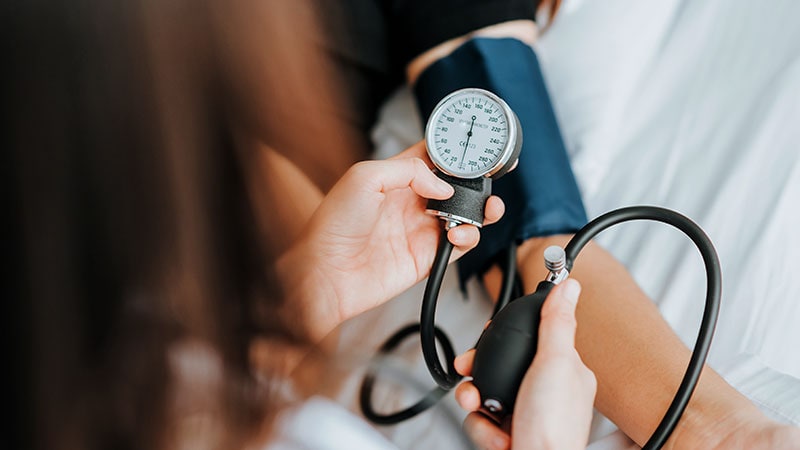Core Concepts
Proper blood pressure measurement is crucial for accurate diagnosis and management of hypertension.
Abstract
The article discusses the challenges surrounding blood pressure measurement in healthcare settings, highlighting the impact on hypertension diagnosis and management in the Americas. Key points include:
Lack of proper training and protocols in primary care clinics for diagnosing and treating hypertension.
Importance of accurate blood pressure measurement emphasized by experts.
Barriers to detecting and controlling hypertension, including low frequency of measurements and improper techniques.
Recommendations for standardized blood pressure measurement procedures.
Use of clinically validated automated devices for accurate readings.
Significance of home blood pressure monitoring for early detection and treatment.
Three 'Synergistic' Problems When Taking Blood Pressure
Stats
"Hypertension is a silent disease that affects 180 million individuals in the region."
"A recent study in Argentina showed that doctors took blood pressure readings in only once in every seven encounters."
"An observational study in Uruguay in 2017 showed that only 5% of 302 blood pressure measurements followed appropriate procedures."
Quotes
"We shouldn't underestimate the importance of taking blood pressure." - Silvana Luciani
"If after three consecutive measurements, readings above 140/90 mm Hg are obtained, the individual should see the doctor to set up a comprehensive treatment program." - Pablo Rodríguez
Key Insights Distilled From
by Matí... at www.medscape.com 06-07-2023
https://www.medscape.com/viewarticle/992902
Deeper Inquiries
How can healthcare systems improve training and awareness for proper blood pressure measurement?
Healthcare systems can enhance training and awareness for proper blood pressure measurement by implementing national protocols that emphasize the importance of accurate readings. This includes incorporating standardized guidelines for blood pressure measurement into medical school curricula, both at the undergraduate and postgraduate levels. Additionally, continuous education programs for healthcare professionals should be established to ensure that they are well-versed in the correct techniques for measuring blood pressure. Providing access to validated automated blood pressure measurement devices and promoting their use can also contribute to improving the accuracy of readings in clinical settings.
What are the potential implications of underdiagnosis or overdiagnosis of hypertension due to inaccurate blood pressure readings?
Underdiagnosis or overdiagnosis of hypertension due to inaccurate blood pressure readings can have significant implications for patient care and outcomes. Underdiagnosis may lead to untreated hypertension, increasing the risk of cardiovascular diseases and other complications. On the other hand, overdiagnosis can result in unnecessary treatments, exposing patients to potential side effects and healthcare costs. Moreover, inaccurate blood pressure readings can impact the assessment of a patient's response to prescribed treatments, leading to suboptimal management of hypertension. Therefore, ensuring the accuracy of blood pressure measurements is crucial to prevent both underdiagnosis and overdiagnosis of hypertension.
How can technology further enhance the accuracy and efficiency of blood pressure monitoring in clinical settings?
Technology can play a vital role in enhancing the accuracy and efficiency of blood pressure monitoring in clinical settings. The use of clinically validated automated blood pressure measurement devices can minimize human errors and provide more precise readings. These devices not only improve the accuracy of measurements but also streamline the process, saving time for healthcare professionals. Additionally, incorporating telemedicine and remote monitoring technologies can enable patients to monitor their blood pressure at home, facilitating early detection of hypertension and better management of the condition. By leveraging technology, healthcare systems can enhance the quality of blood pressure monitoring, leading to improved patient outcomes.
0
